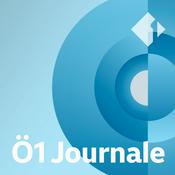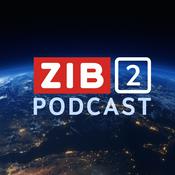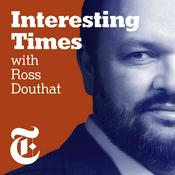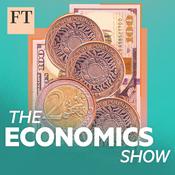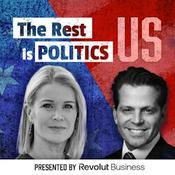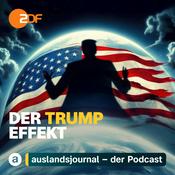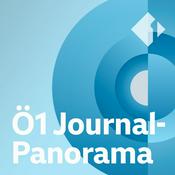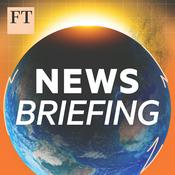Verfügbare Folgen
5 von 83
- "Kyoto" Playwrights, a Climate Scientist, Journalists and a Campaigner Explore Climate Drama - Onstage and OffI think you’ll love this Sustain What conversation I just had with Joe Robertson and Joe Murphy, the brilliant young playwrights behind Kyoto, the tragicomic play describing the titanic diplomatic and political tussle as climate change science threatened to bring an early end to the fossil fuel age.My “curtain raiser” post has a heap of details and related links:But much more emerged in the discussion, which also included Ben Santer, a veteran climate scientist who’s a character in the play (he writes about that here), Jean Chemnick, an E&E News/Politico reporter who wrote in depth on petrostate and industry efforts to derail climate talks, and Jenny Shalant, a Natural Resources Defense Council writer who wrote a great essay after seeing the play.If you appreciate what I’m doing curating these webcasts, please consider pausing on Giving Tuesday to chip in so I can keep at it in 2026.Here are a couple of highlights, starting with Joe and Joe’s origin story as public-minded playwrights, which involved building a performance dome in a Calais, France, migrant community.Here’s Ben Santer, who was consulted in the writing of the play and has seen it three times, describing a crucial turning point in the play and in history - the fingerprint analysis he and others did showing the human effect on climate that undercut the industry’s argument for delay:Attacks and dead ratsSanter also discussed the discomfort of watching the play describe the attacks he faced, and the fear his son faced, when a rat was left on his doorstep:The Joes described how they are working on two more plays in what they see as a series - on the Copenhagen round of climate talks in 2009 and the journey to and beyond the Paris Agreement in 2015. I’m looking forward to the next steps in their theatrical journey.Thank you to everyone who tuned into my live video. Join me for my next live video in the app. This is a public episode. If you'd like to discuss this with other subscribers or get access to bonus episodes, visit revkin.substack.com/subscribe--------53:54
- A "Buy Nothing Day" Chat With Rev. Billy Talen of the Church of Stop Shopping and Low-Carbon Maven Lloyd AlterI needed an intervention today and reached out to my old friend from the anti-consumption wars, the Rev Billy Talen of the Church of Stop Shopping, and to Lloyd Alter, one of the great longtime guides to low-impact and low-carbon building, transportation and the rest. I hope the resulting conversation above offers a tonic during this crazy “Black Friday” week. You can also watch and share it on Facebook, LinkedIn, X/Twitter and YouTube:I needed help after reading a great piece by Alter calling out CNBC for this insanely ridiculous piece warning that people and businesses were holding onto their technology too long: “Americans are holding onto their devices longer than ever and it’s costing the economy.”Alter quotes the piece’s core warning:“While squeezing as much life out of your device as possible may save money in the short run, especially amid widespread fears about the strength of the consumer and job market, it might cost the economy in the long run, especially when device hoarding occurs at the level of corporations.”He goes on:Author Kevin Williams argues that we need the latest, fastest stuff. “Lost productivity and inefficiency are the unintended consequences of people and businesses clinging to aging technology.” The dean of a business school says, “While keeping devices longer may seem financially or environmentally responsible, the hidden cost is a quieter erosion of economic dynamism and competitiveness.”He concludes that all of this is, in essence, a call for more combustion:Basically, our economy is built on the conversion of fossil fuels into heat and carbon dioxide, with a helping of plastics on the side. There is a reason why COPs always fail, why Donald Trump kills wind and solar, and why even Mark Carney pushes pipelines; they know that fossil fuels ARE the economy.Alter kicks into higher gear:It is all about turning energy into stuff and selling as much of it as possible. And when we buy, we are contributing directly to that conversion of energy, a byproduct of which is carbon dioxide. It’s why we have been inculcated in this culture of convenience, to go through all this effort, to keep the fossil fuels flowing and the economy pumping out wealth. Please read the full piece!In our conversation, Alter goes deeper, saying:This is what we do. We extract oil, we refine it, we turn it into plastic, we make it into a spoon, we truck it to a store, we use it once.And the story doesn’t even stop there. Then we put it into piles and we have someone take it away and we go through all the pretend recycling when we really know it’s just going into a dump. And the whole process is completely insane. And all it does is mean that someone somewhere is pumping more oil.And that’s what we have to break in this economy. It all goes back to the fossil fuels. And as I said in it, that’s why, of course, Trump does what he does to promote the fossil fuel industry. It’s why COP just failed because none of the fossil fuel producing countries want to do anything.We’re all gray-haired old curmudgeons, of course, which is why I was excited to hear Talen’s “church” was going to co-host a Buy Nothing Day event in New York City’s East Village with the Lamp Club, one of a dispersed array of latter-day Luddite groups popping up around the country. Talen pointed me to a big New York Times feature on this percolating movement: They’re Trying to Ditch Their Phones. Their Methods Are Unorthodox.Here’s a snippet:The Lamp Club is part of a growing ecosystem of “neo-Luddite” groups across the country that encourage people to transform their relationship to technology. Other groups include the Luddite Club, APPstinence and Breaking the (G)Loom — organizations that, for the most part, were started not by parents wishing their teens would get off their devices but by the teens themselves, who fault phones for fraying human connections as well as accelerating inequality and climate change. There are now more than two dozen Luddite Clubs in North America, from Ithaca, N.Y., to Irvine, Calif.Please listen to the full conversation and share it with others. I need your help growing our Sustain What network. And do chip in financially if you can afford it.Sustain What is a reader-supported publication. To receive new posts and support my work, consider becoming a free or paid subscriber.I’ve been enthusiastically tracking the Buy Nothing effort since 2007. And for more on Luddites, old and new, please subscribe to Brian Merchant’s vital Blood in the Machine Substack: This is a public episode. If you'd like to discuss this with other subscribers or get access to bonus episodes, visit revkin.substack.com/subscribe--------52:54
- A Check-in on COP30 with a Top Brazilian Climate Journalist and Kim Stanley Robinson on the Role of Fiction Facing Inconvenient FactsI hope you can watch and weigh in on this conversation I had on the final official day of COP30, the thirtieth round of climate treaty talks, which are wrapping up in Belém, the gateway city to Brazil’s vast portion of the Amazon River basin.First we had a pop-up update from my friend Cristiane Prizibisczki, a veteran Brazilian environmental journalist covering the meeting for the great online publication ((o))eco. A big focus of their coverage was the call for a Fossil Fuel Nonproliferation Treaty (a tough sell in the formal sessions even without the Trump administration on hand given the suffocating role of Saudi Arabia in these talks (and the entire three decade process).Around 80 countries have signed on, as Prizibisczki reported, “through the launch of a coalition – or “collective effort”, as the COP presidency has used the term – for the abandonment of the use of fossil fuels at a global level. Among the countries present were Germany, Colombia, the United Kingdom and Kenya.” A crucial qualifier is that such a process would need to be “just” - offering different paths for low-emission poor countries than wealthy fossil-fueled powers. (A related concept that I explored in a previous Sustain What show is a “takeback obligation” for fossil fuel companies to capture their CO2.)She also gave a vivid description of the dramatic evacuation triggered by a contained but smoky fire in the negotiators’ “Blue Zone.”My feature guest was Kim Stanley Robinson, the longtime climate-focused science fiction author who’s just returned to his home in Davis, Callifornia, after speaking at the COP30 climate treaty conference in Brazil.He left before the fire erupted in the Blue Zone complex Thursday, causing a mass evacuation just as countries’ delegations were in the final press of negotiations over next steps 10 years after the Paris Agreement.Here’s my curtain raiser post for the webcast, which includes info on the fire:Here’s Robinson’s description of the indigenous protests at COP30:We also talked about the importance of fiction, from Robinson’s sprawling 2020 novel to the play “Kyoto,” which had its first run in London a year ago and is currently Off Broadway at Lincoln Center Theatre in New York City through November. I played a scene from the London production that deeply resonated with my decades reporting on Saudi Arabia’s sustained role trying to prevent substantive agreements - and my personal experience with the protagonist, a lawyer and lobbist for fossil interests, Don Pearlman.Please watch and weigh in with your reactions in the comments. And do consider supporting what I’m doing here on Sustain What by sharing this post with friends and contributing financially.Sustain What is a reader-supported publication. To receive new posts and support my work, consider becoming a free or paid subscriber.Thank you Meera Subramanian, Keith Kloor, David R. Guenette, Martha Morningsong, Entropy, and many others for tuning into my live video! Join me for my next live video in the app. This is a public episode. If you'd like to discuss this with other subscribers or get access to bonus episodes, visit revkin.substack.com/subscribe--------1:06:27
- Update from Journalists at the #COP30 Climate Talks in BrazilJames Fahn founded the Earth Journalism Network 20 years ago. The organization has helped foster the reporting capacity of journalists around the world and helped build innovative colllaborative news networks like InfoNile and InfoAmazonia. Here I caught him in the middle of the 30th session of negotiations under the 1992 Framework Convention on Climate Change, the treaty that is the foundation for the Paris Agreement a decade ago. Share this post or do so on X, on Facebook, on LinkedIn.Fahn lays out the key points being negotiated - in the absence of United States participation under President Trump’s second term.We also discussed the enormous indigenous presence at this COP - not unxpected given that Belem sits at the mouth of the Amazon River.You can explore the stories being generated by journalists affiliated with the Earth Journalism Network here:Sustain What is mostly a labor of love. To support my work, consider becoming a financial supporter. This is a public episode. If you'd like to discuss this with other subscribers or get access to bonus episodes, visit revkin.substack.com/subscribe--------22:01
- Cory Doctorow Explains How to Disenshittify Your Online Life and Brace for the Impending AI Bubble ImplosionI hope you’ll take time to watch and share this Sustain What conversation withCory Doctorow, a tireless champion of the best that digital technology can give society and foe of those who are enshitifying this public good for profit or power. Also please pass it around on Facebook, YouTube, LinkedIn and X/Twitter. And do subscribe to Sustain What and consider chipping in if you like what I’m doing:Doctorow has done grueling work through innumerable Pluralistic posts and his many books, including Enshittification, the main focus of this chat, and another coming soon on the impending implosion of the AI bubble. Here’s an excerpt from a recent post he wrote that captures that part of what we discussed:[T]he AI bubble is driven by monopolists who’ve conquered their markets and have no more growth potential, who are desperate to convince investors that they can continue to grow by moving into some other sector, e.g. “pivot to video,” crypto, blockchain, NFTs, AI, and now “super-intelligence.” Further: the topline growth that AI companies are selling comes from replacing most workers with AI, and re-tasking the surviving workers as AI babysitters (“humans in the loop”), which won’t work. Finally: AI cannot do your job, but an AI salesman can 100% convince your boss to fire you and replace you with an AI that can’t do your job, and when the bubble bursts, the money-hemorrhaging “foundation models” will be shut off and we’ll lose the AI that can’t do your job, and you will be long gone, retrained or retired or “discouraged” and out of the labor market, and no one will do your job. AI is the asbestos we are shoveling into the walls of our society and our descendants will be digging it out for generations…. [Read the rest, please]He has also long worked for or advised the Electronic Frontier Foundation, devoted to digital privacy and oline free speech. He suggested you might get involved by finding and joining one of the branches of the related Electronic Frontier Alliance, “a grassroots network made up of independent community organizations…across the United States work to support digital rights and empower their local communities.”Click here for the curtain raiser post that has more context:Sustain What is a reader-supported publication. To receive new posts and support my work, consider becoming a free or paid subscriber. This is a public episode. If you'd like to discuss this with other subscribers or get access to bonus episodes, visit revkin.substack.com/subscribe--------1:00:14
Weitere Nachrichten Podcasts
Trending Nachrichten Podcasts
Über Sustain What?
Sustain What? is a series of conversations, seeking solutions where complexity and consequence collide on the sustainability frontier.
Revkin believes sustainability has no meaning on its own. The first step toward success is to ask: Sustain what? How? And for whom? revkin.substack.com
Podcast-WebsiteHöre Sustain What?, LANZ & PRECHT und viele andere Podcasts aus aller Welt mit der radio.at-App

Hol dir die kostenlose radio.at App
- Sender und Podcasts favorisieren
- Streamen via Wifi oder Bluetooth
- Unterstützt Carplay & Android Auto
- viele weitere App Funktionen
Hol dir die kostenlose radio.at App
- Sender und Podcasts favorisieren
- Streamen via Wifi oder Bluetooth
- Unterstützt Carplay & Android Auto
- viele weitere App Funktionen


Sustain What?
Code scannen,
App laden,
loshören.
App laden,
loshören.




